Summary
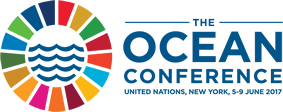
This side event will take place on 5 June from 1:15 - 2:30pm, in Conference Room 7, UN Headquarters. It is co-organized by the Government of Egypt (Egyptian Environmental Affairs Agency) and the Secretariat of the Convention on Biological Diversity.
IISD Reporting Services, through its ENB+ meeting coverage, will provide digital coverage of this event. Kindly return to this website on Monday, 5 June 2017, for our coverage of this event.
Meeting page / Meeting document
Photos by IISD/ENB
For photo reprint permissions, please follow instructions at our Attribution Regulations for Meeting Photo Usage Page
Marine Pollution: A Critical Challenge (and Opportunity) for Sustainable Development
Presented by: Government of Egypt and the Secretariat of the Convention on Biological Diversity (CBD) and partners
This event was co-chaired by Cristiana Paşca Palmer, Executive Secretary, CBD, and Hamdallah Zedan, Egypt, on behalf of Khaled Fahmy, Minister of Environment, Egypt. Paşca Palmer said marine pollution is a major barrier to sustainable development, but also an opportunity to re-evaluate our relationship with oceans. Zedan noted action on marine pollution had been limited so far, and warned that only eight years remain to achieve SDG target 14.1 to significantly reduce all kinds of marine pollution by 2025.
Karolina Skog, Minister of the Environment, Sweden, said her country is taking a source-to-sea perspective on marine pollution, examining how investments on land in areas such as environmentally sound waste management can contribute to reducing marine pollution.
Moustafa Fouda, Egypt, discussed his country’s successes and challenges in protecting marine biodiversity and combating marine pollution.
Chris Wilcox, Commonwealth Scientific and Industrial Research Organisation (CSIRO), discussed CSIRO efforts to build evidence on the sources and risks of plastic pollution. He said evidence suggests instruments that raise the cost of plastic containers, such as deposits, are effective in changing consumer behavior and reducing marine litter.
Darius Campbell, OSPAR Commission, discussed OSPAR efforts to combat marine litter. To scale up to a global effort, he urged taking into account all interactions with the sea and how they affect the marine environment, and engaging partners across sectors and regions.
Habib El-Habr, UN Environment, discussed the Global Partnership on Marine Litter (GPML) and the Clean Seas Campaign. He said the third UN Environment Assembly will address marine litter and assess possible options for action at the global level.
Fredrik Haag, International Maritime Organization (IMO), noted IMO’s work on ship-related pollution and ocean waste dumping, its technical cooperation programme, and the partnerships it has formed with industry and other international institutions on issues such as ballast water.
Joseph Appiott, CBD, explained CBD work relevant to marine pollution, particularly in the context of the Aichi Biodiversity Targets and the follow-up to the Cancun Guidance for Mainstreaming Conservation and Sustainable Use of Biodiversity.
Kim Friedman, Food and Agriculture Organization of the UN (FAO), presented FAO's work examining microplastics' ecological and food safety impacts regarding: the presence impacts of microplastics in commercial species; seafood contamination and health implications for people; and quantification of the source of microplastics from fisheries and aquaculture.
In the ensuing discussion, participants addressed, inter alia: research on what chemicals plastics absorb and their effect on marine species consumed by humans; whether the SDG 14.1 target can be met; whether plastic bags and single-use plastics should be banned; the importance of addressing anthropogenic underwater noise; and the importance of incorporating an educative dimension into action programs.
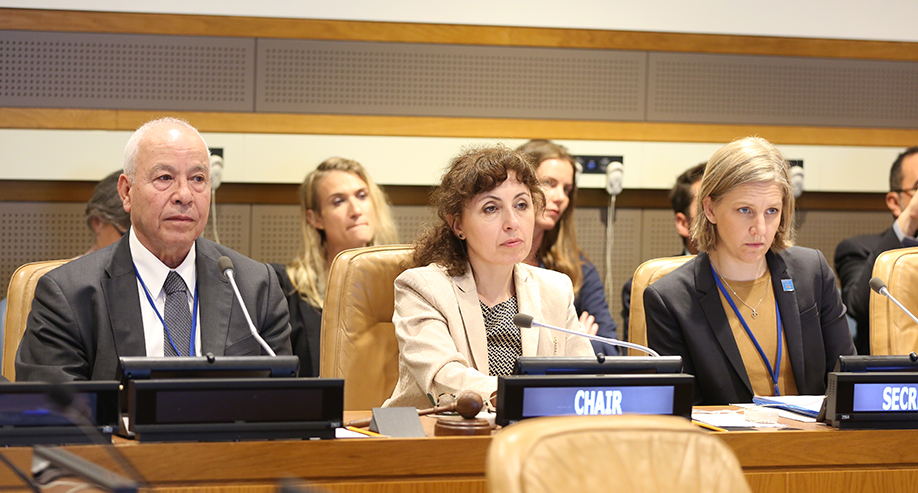
Panel (L-R):
Hamdallah Zedan, Chair, Preparatory Committee for CBD COP 14, Egypt;
Cristiana Paşca Palmer, Executive Secretary, CBD; and
Karolina Skog, Minister of the Environment, Sweden.
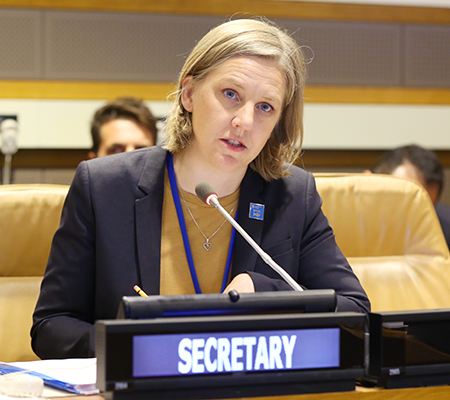
Karolina Skog, Minister of the Environment, Sweden, explained her country is taking a source-to-sea perspective, looking how actions on land affect the marine environment.
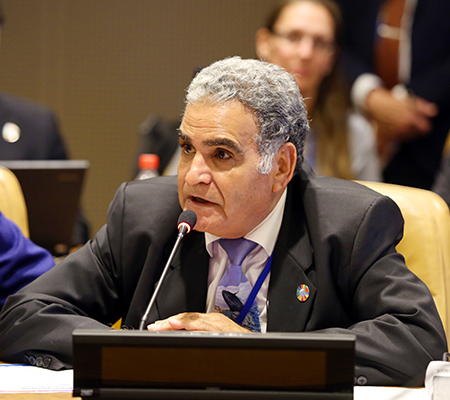
Moustafa Fouda, Ministry of State for Environmental Affairs, Egypt, discussed lessons learned that can be scaled up to meet SDG 14.1 and Aichi Biodiversity Target 8.
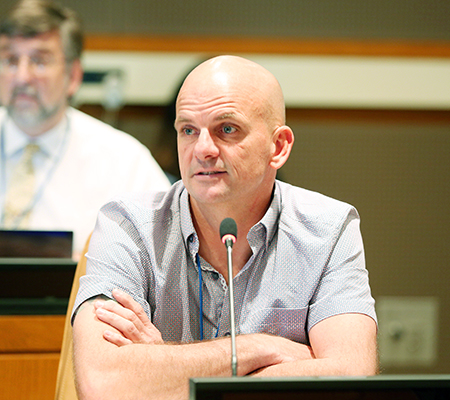
Chris Wilcox, Commonwealth Scientific and Industrial Research Organisation (CSIRO), said instruments affecting the cost of plastic containers, such as a container deposit, can change consumer littering behavior and in turn reduce plastic marine debris.
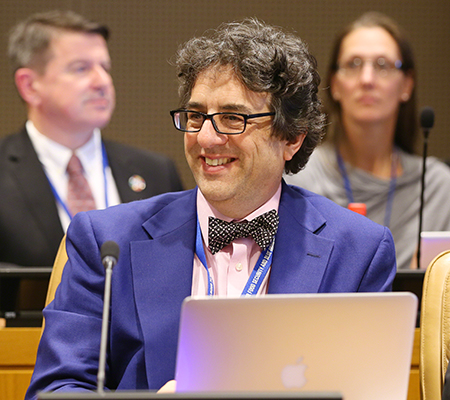
Darius Campbell, OSPAR Commission, stressed the need for partnerships that address marine pollution spanning both multiple sectors and regions.
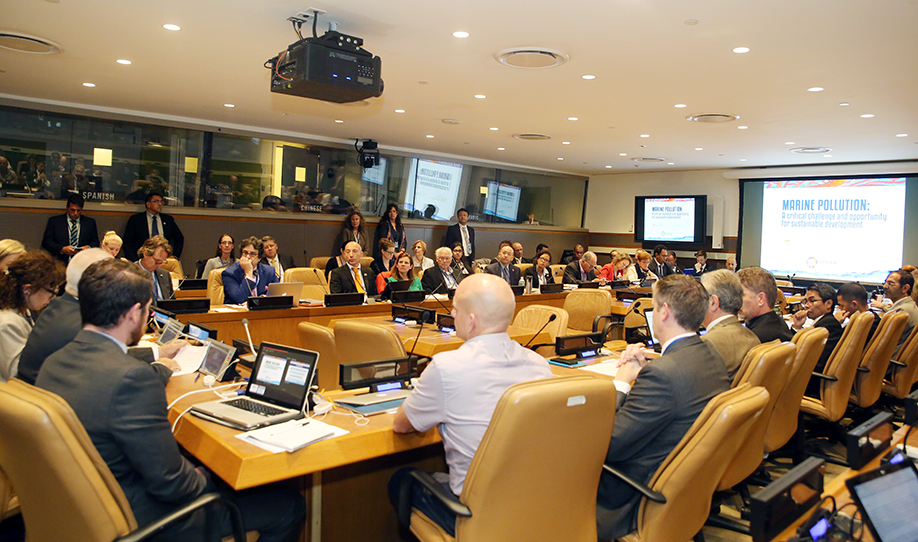
Contacts:
- Joseph Appiott (CBD Secretariat) | joseph.appiott@cbd.int